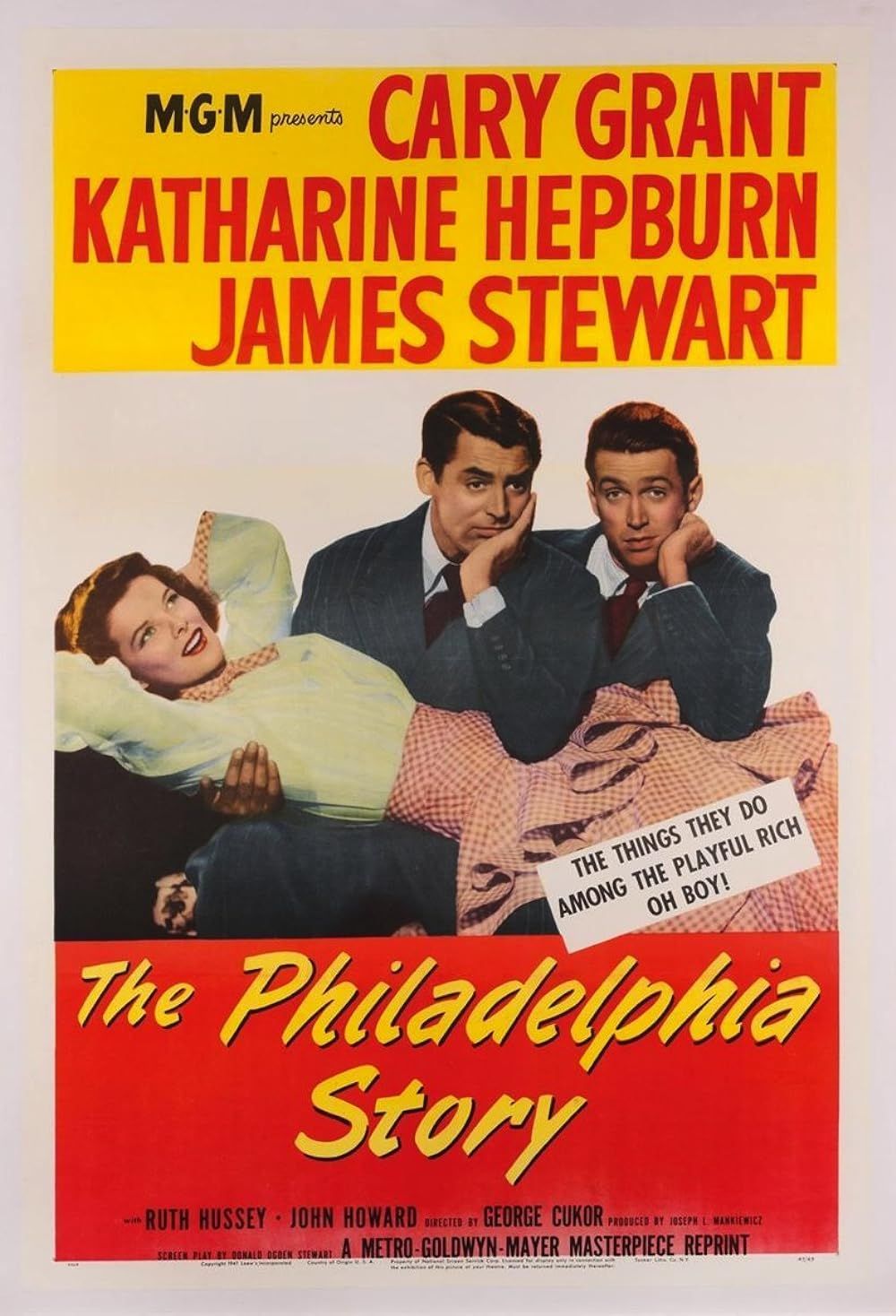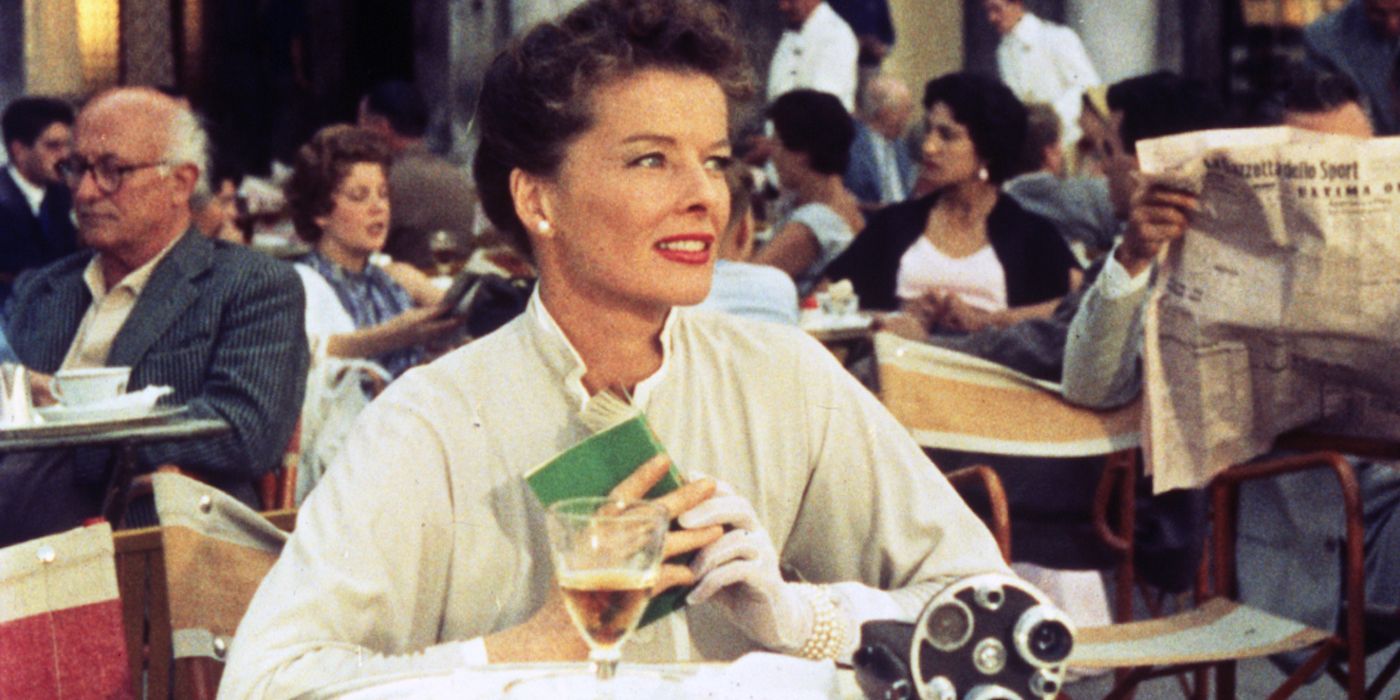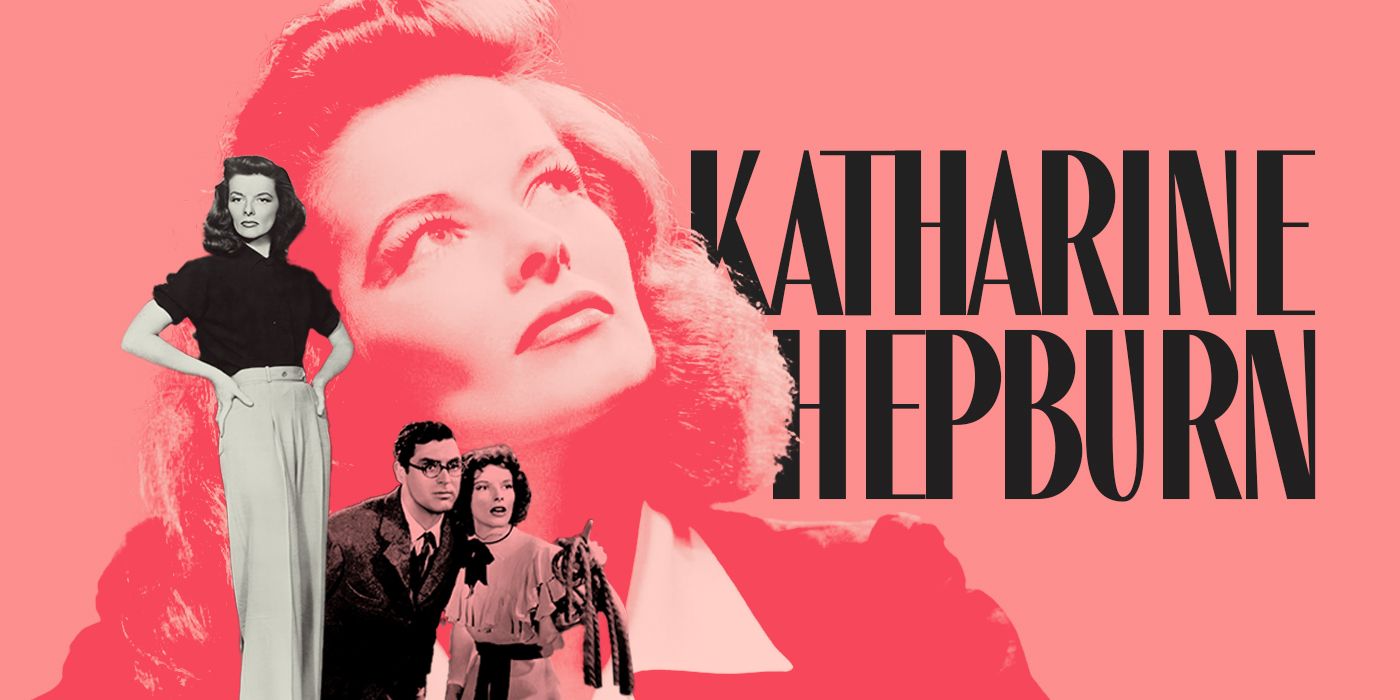The Big Picture
- Hepburn faced both early success and struggles, with a mix of hits and flops shaping her career trajectory.
- The film The Philadelphia Story was crafted to showcase Hepburn's strengths and soften her image for a comeback.
- Playing Tracy Lord allowed Hepburn to showcase her fiery nature while also portraying vulnerability for audience sympathy.
Two things can be true at the same time, even if those two things seem completely incompatible with each other. Case in point: Katharine Hepburn is the only actor, regardless of gender, to win four Academy Awards for Best Actress, but she also almost had her career cut short about as soon as it began. The trope that careers could be made and broken with just one film was already readily established by the late 1930s, at which point Hepburn had a string of stinkers under her belt with her as the poster child. Even her already being an Oscar winner didn't help any, as she had to think on her feet to keep her career going. Luckily, she was a natural behind-the-scenes politician, who made the right moves to ensure her next feature would be the one to officially launch her as the actress of her generation.

The Philadelphia Story
When a rich woman's ex-husband and a tabloid-type reporter turn up just before her planned remarriage, she begins to learn the truth about herself.
- Release Date
- January 17, 1941
- Director
- George Cukor
- Cast
- Cary Grant , Katharine Hepburn , James Stewart , Ruth Hussey , John Howard , Roland Young , John Halliday , Mary Nash
- Runtime
- 112 Minutes
- Main Genre
- Comedy
Katharine Hepburn's Film Career Started Off Both Hot and Cold
Hepburn first made a name for herself in the theater and transitioned into film as early as 1932 with A Bill of Divorcement, directed by George Cukor, who would later become one of her closest Hollywood friends and collaborators. By just her third film in 1933, Morning Glory, she would win an Oscar for Best Actress, and would also deliver her first truly iconic film character with Jo in Little Women the same year. This burst of early success would codify her as an actress who embodied domineering willpower and undeniable intelligence that made her sharply charismatic. The following few years of her career would involve a series of ups and downs: a bunch of duds, then another Oscar nomination for Alice Adams, followed by another series of duds. This was combined with an increasing feeling of distaste and animosity between her and the press, who, in the words of noted film critic Molly Haskell, pushed against her for "her lack of sentimentality, her sublime self-assurance, her confident expectations of those around her." It didn't help any that she was notorious for doing things like being provocative when asked dumb questions and having the gall to wear pants and shirts instead of typical feminine clothing. This feeling that she lacked tact or sex appeal reached such a fever pitch that she lost out on playing Scarlett O'Hara in Gone With the Wind largely due to producer David O. Selznick feeling that he "couldn't imagine Clark Gable chasing her all those years."
The turn against her fully fomented with the release of two more films, Stage Door and Bringing Up Baby. Stage Door had Hepburn starring with Ginger Rogers as part of a group of stage actors trying to make breaks in their careers, and while the film was a major Oscar success, including Best Picture, it was a bit of a flop, which she got blamed for. Bringing Up Baby did ultimately survive the test of time as one of the great screwball comedies of its era, with her character of Susan Vance serving as one of her most memorable creations, yet when it first premiered, it was a colossal bomb. Having become the main attraction of two straight disappointments, combined with her rocky prior releases and so much negative press about her, caused her to officially be labeled literal "box office poison" by the Independent Theater Owners of America. Her only recourse was to recommit herself to stage acting, where she would be gifted the project that would provide her career with its desperately needed restart.

Katharine Hepburn's True Vulnerability Shines in 'Summertime'
We look back at one of Hepburn's finest films on the 20th anniversary of her death.Katharine Hepburn Worked To Craft 'The Philadelphia Story' For Her Strengths
When Philip Barry first wrote The Philadelphia Story, he did so with Hepburn in mind, having both observed her interactions with her friends and family and engaged in numerous script conferences with her. Hepburn turned to him to write her a vehicle that would cater to her talents and put her in the best possible light for a comeback, as she wasn't going to give up the career she'd fought for. Her stroke of genius was to insist that Barry should write his protagonist, Tracy Lord, as similar to who Hepburn really was, while also making "her go all soft," understanding that an audience that had turned against her would be more likely to sympathize with her if she got humbled by the story. Where previous characters she'd played, like Jo or Susan, would defiantly bulldoze their way through conflict, Tracy wasn't afraid to break down crying or make a fool of herself with her fiery spirit, much like the real Katharine.
When the play debuted, it was a rousing success, and knowing that the play would inevitably be made into a film, she had her soon-to-be-ex-partner, the billionaire Howard Hughes, buy the film rights for her. This would leave her in most control of how the film would eventually be put together, provided she knew how to play the game. When negotiating with MGM head Louis B. Mayer, she got her ally Cukor as director and Donald Ogden Stewart as screenwriter, while she had to settle for James Stewart and Cary Grant as costars, which turned out to be a blessing in disguise.
'The Philadelphia Story' Was A Testament To Hepburn's Intelligence As A Movie Star
The film version of The Philadelphia Story remains one of the great romantic comedies of the 1940s, both as a pristine construction of the love triangle and as an encapsulation of the charms of its three leads. The farce of socialite Tracy Lord (Hepburn) having to battle off the affections of her ex-husband C.K. Dexter (Grant) and the tabloid reporter Mike Connor (Stewart), who are conspiring to get the exclusive story of her upcoming marriage to an incredibly boring wannabe politician (John Howard) who doesn't matter at all. While the film truly sings thanks to the chemistry between the three of them, married to the sharp dialogue, it functions largely as a metatextual takedown of the idea of "Katharine Hepburn" that audiences had grown tired of. Tracy spends the majority of the film being chastised and embarrassed for her lack of consideration for others and her impossibly high expectations of everyone, with her fiancé treating her like a perfect idol, which Dexter deeply resents. Her dynamic with Mike is an odd case of butting heads, as they both see each other as snobs who are drawn to each other for their passionate outlooks on life, once they can let their guards down. Ultimately, playing Tracy allowed audiences to see Hepburn as she wanted them to see her: still fiery, still unapologetically hardnosed, yet a smooth operator that's willing to let her seemingly impenetrable armor be pierced by the messy complications of love and cohabitation. As Molly Haskell put it, "she had to do some kind of self-abasement to stay on the good side of the audience."
It was this self-abasement that became the key to Katharine Hepburn becoming a welcome movie star again. With this film and the next few films she'd make, most notably Woman of the Year, the first of her many pairings with Spencer Tracy. In that film, she was an independent and goal-oriented reporter who gets gradually cowed into being a more traditional wife for the sake of keeping her marriage to her fellow reporter husband intact. Hepburn set herself up as a person who could take as well as she gave, maintaining her credibility as forward-thinking and uncompromising as she attempted to please the cultural expectations that audiences projected onto her. Does that sound contradictory? Yes, but movie star magic just has a way of glossing over such silly things, as long as it feels true. The last thing you could ever call Katharine Hepburn was dishonest.
The Philadelphia Story is streaming on Tubi in the U.S.

